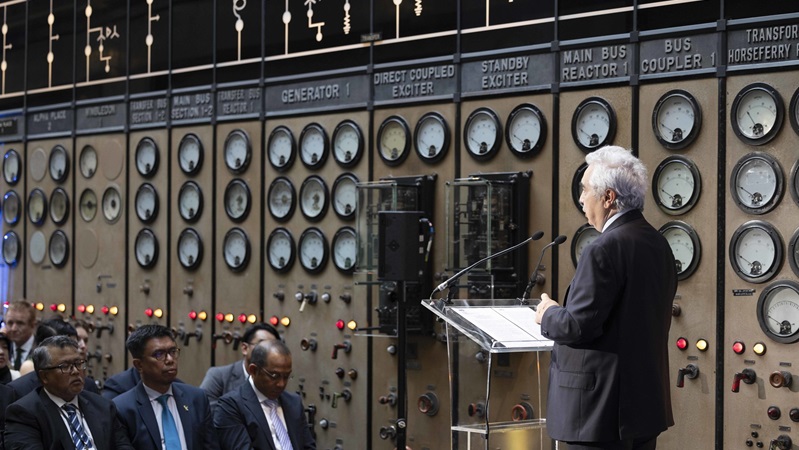Countries have agreed to reduce power generated from coal, but shutting down plants is an economic and social challenge, especially in emerging economies
Governments should promise in their next round of climate plans, due by early next year, not to build any new coal-fired power stations and to shut down existing ones early, the head of the International Energy Agency (IEA) has said.
Speaking on Monday at an old London coal power plant-turned-shopping centre, IEA head Fatih Birol said he would be “very happy” to see new NDCs (Nationally Determined Contributions) that “include no new unabated coal and also early retirements of existing coal”.
In 2021, the Glasgow Climate Pact, agreed at the COP26 UN climate summit, called on countries for the first time to accelerate efforts “towards the phase-down of unabated coal power”. “Unabated” means power produced using coal without any technology to capture, store or use the planet-heating carbon dioxide emitted during the process.
Birol, a Turkish energy analyst, said that stopping coal-plant construction was “as our North American colleagues would say, a no-brainer”. Yet, he added, while “the appetite to build new coal plants is in a dying process, some countries still do it”. He singled out China’s plans to build 50 gigawatts (GW) of new coal plants.
Shutting down existing coal plants, particularly young ones in Asia, is more difficult because the companies that have built and operate them would lose money, Birol noted. There is almost $1 trillion of capital to be recovered from existing coal plants, “so who is going to pay for this?” he asked, calling it “a key issue”.
Birol praised the Just Energy Transition Partnerships that have been set up between wealthy countries and several coal-reliant emerging economies like South Africa and Indonesia to help address the problem. He added that “there are some countries in Asia who can, in my view, afford to retire their coal plants earlier”, without mentioning which.
Malaysia’s Deputy Prime Minister Fadillah Yusof announced at the event organised by the Powering Past Coal Alliance, which includes 60 countries, that Malaysia aims to reduce its coal-fired power plants by half by 2035 and retire all of them by 2044. It will also tackle social and economic challenges through reskilling programmes for workers and promoting renewable energy adoption, he added.
Speaking later at London’s defunct Battersea power station, Indonesia’s deputy minister for maritime affairs and investment, Rachmat Kaimuddin, explained some of the challenges his country faces in phasing out coal.

Kaimuddin (right) speaks alongside Germany’s climate envoy Jennifer Morgan (centre) in London on June 24, 2024. (Photo: Powering Past Coal Alliance)
After China and India, Indonesia has the world’s biggest pipeline of new coal power plants under construction. Kaimuddin said the state energy company would not build any more but added that cancelling existing contracts is “very, very difficult” unless the company constructing the plant wants to pull out – which none have yet.
In addition, shutting down existing power power plants is expensive, he said, because many coal power plants have “take or pay” contracts signed in the 1990s under which the government pays them whether their electricity is required or not.
Another concer
Read More

